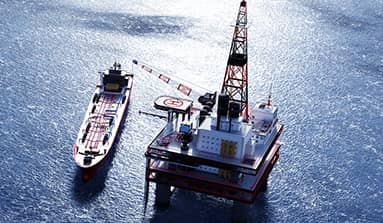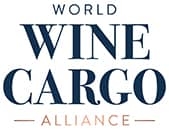Understanding Movement Guarantee
A KC Group Shipping In-Depth Insight
The logistics landscape can often be complex for many businesses. At KC Group Shipping (KC), we continually guide our customers, helping them navigate solutions for worldwide freight. As part of our In-Depth Insight series, we chatted with Andy Robinson, KC Group Shipping European Team Leader, to explore the Movement Guarantee - the requirements, processes and legislation.
In this In-Depth interview, we will help you understand the following:
- What is a Movement Guarantee
- Which goods are subject to a Movement Guarantee
- The different taxes and duties which apply to excisable goods
- How Brexit has affected imports and exports
- How to stay compliant and prevent fraud
- The Movement Guarantee and Europe
- How can we help you calculate Excise Duty
- Duty Drawback
In-Depth Editor (IDE) Hi Andy. Many thanks for taking the time to chat and provide insight for our audiences. The Movement Guarantee – where do we start?
Andy Robinson (AR) Happy to assist. The best place to start is understanding the purpose of a Movement Guarantee - to transport goods under excise duty suspension in the UK. The Excise Movement and Control System (EMCS) must track all movements. It's a computerised system for monitoring the activity of excise goods.
The Movement Guarantee is a form of financial security and means all excisable goods, mostly alcohol, tobacco and energy products, are documented at every stage of their journey.
Harmonized System Codes, commonly referred to as HS codes, are used worldwide for customs and excise to identify products, many of which are liable for excise duty. Each has an individual rate of excise duty listed on the government tariff website. These are reviewed periodically and used by customs authorities worldwide to identify products when assessing duties and taxes and for gathering statistics.
Things that are important to remember:
- Excise duty is chargeable, plus any regular customs duty which may be due.
- Excise goods are also liable for VAT like any other imported product.
(IDE) For someone like me, not familiar with the processes, are Excise Duty and Customs Duty the same thing?
(AR) [With a wry smile] Good question, but unfortunately, they are two different things, and Excise Duty is often chargeable in addition to any regular Customs Duty. It's essential to know all your costs and duty charges and that goods are also liable for VAT like any other imported product. We assist many customers with it when planning the Movement Guarantee.

(IDE) Brexit has brought many changes within the logistics and shipping industry and the import and export markets. Many of us immersed ourselves in all the news coverage, but please educate us, does a UK Movement Guarantee cover cargo out with UK shores?
(AR) No, Since the United Kingdom voted to leave the European Union, a UK Movement Guarantee is now only valid in either Great Britain or Northern Ireland. The EMCS I mentioned, however, remains. As the EMCS allows the exchange of secure data passing between EU and UK countries, all UK parties involved in exporting excise goods must sign up to it, and HMRC must approve you to receive or dispatch any goods of this nature. Also, important legislation means all premises holding excise goods must be duly checked and approved. This comes in the form of warehouse authorisation codes and premise identifiers. Not just any warehouse can store these particular kinds of goods.
(IDE) Sticking with Brexit, Andy, what impact has it had on UK Movement Guarantees and what has KC Group Shipping put in place to bring solutions?
(AR) You mentioned that many of us had immersed ourselves in the considerable news coverage, and it's true to say the impact has been significant. Undoubtedly, Brexit, in my opinion, has been the most significant shift in the UK logistics sector for 50 years. It has been a steep learning curve for many and, unfortunately for some companies within the industry, something they were not planning for, with many unable to adapt. Although none of us knew what the eventual Brexit outcome would be, we wanted to safeguard our business and customers by planning for each eventuality. At KC, we ensured we were ahead of the game. We take pride in how we adapted as a business and individual teams to ensure minimal difference and mitigate new challenges for our customers. We also worked closely with our supply chains to enhance their understanding and knowledge of the changes in processes and legislation.
So, any item travelling between the UK and EU now must be customs cleared on both sides. I previously mentioned that the UK Movement Guarantee only provides security on UK roads, so KC took additional steps to provide our customers with options within Europe.
I would say that transit documents are now at the forefront of our day-to-day operations. We enlisted in the New Computerised Transit System (NCTS), an online platform to submit electronic transit declarations. With our dedicated Movement Guarantee Department, the industry-approved documents, and our robust in-house processes, we can certainly support the transportation of customers' goods within the EU to this day – despite the challenges brought by the Brexit transition.
(IDE) Is there a maximum value of cargo which can be transported under a Movement Guarantee?
(AR) Whilst there are no limits on the commercial cargo value, holders of a UK movement guarantee have to assess the excise value of potential consignments carefully before accepting. We have an easy-to-read sliding scale of costs that depends on the excise value, with the higher value cargo at a premium due to the increased risks involved. We also have to account for transit time, routing, packaging and many other variables, but we will be transparent and honest and carefully explain every decision to the client. If we feel there is a viable alternative stopping us from being able to help, we will always work with the client to suggest any suitable options which may be on the table.
Using a structured, carefully thought-out plan and process, we assess each new customer request on a bespoke basis, as there are many variables to consider. We have a financial guarantee limit agreed with HMRC, which provides the necessary security to each of our customers. For me and the Movement Guarantee Team at KC, it's about making it as simple a process as possible for everyone involved and creating transparency for reporting. Before each booking, we provide an official document outlining all our associated terms and conditions.
(IDE) For many businesses, the ability to sell their goods worldwide provides a much-needed platform for growth, but what happens if they have never used a Movement Guarantee before?
It's about working in partnership with customers, ensuring the most seamless and compliant service solution is in place.
(AR) Before I answer the question, we get lots of potential new customers who make contact looking for our support. The import and export process can be confusing, but our team can guide them through all stages.
Effective customer support is core to the KC values. Our approach guides customers, and that culture extends to supporting them through the myriad of trade duty options and solutions. To be at the start of a company's new journey with international trade is exciting.
OK, to answer your main question now. Along with KC's worldwide import and export team, with over 35 years of experience, we have a tailor-made European Department as a direct result of the UK leaving the European Union. We knew customers would need to lean on our expertise, including those who were perhaps only used to shipping within the confines of the single market previously.
Since the department's formation, we have become integral to operations for existing customers and guided many new customers through the process of shipping Excise Duty-associated goods throughout the EU and beyond. The team within the department is also continually growing, which is great to see for me.
It's about working in partnership with customers, ensuring the most seamless and compliant service solution is in place. Like everything else with Movement Guarantee, we make sure everything on our side is transparent for customers and always provide a quotation for each consignment. Once we have some simple consignment details, such as warehouse details, HS code, quantity and packing arrangements, we can calculate potential excise duty. Our supply chain network also positions us perfectly to provide the transport required to suit your needs.
We're an approachable team who can supply you with the correct information and provide costs to support the delivery from end to end.
(IDE) Thanks, so let's say customers now understand the process better. It's evident to them that the KC European department can support their needs. Their next question may be, can all excisable commodities be transported under a Movement Guarantee?
(AR) Funnily enough, that is a question I hear regularly. Although we can advise customers, even without working directly with KC, people can visit the UK Government website for a complete list of all commodities considered 'excise' goods.
I would also signpost people to an informative article from gov.uk on trade tariffs, excise duties, reliefs, drawbacks, and allowances (click here to view the online article). Although at KC, from a percentage perspective, the majority of customer requests for our Movement Guarantee support centres around transporting alcohol, our team is abundant in expertise across all commodities. What I would say to those with Duty Excise goods, and supply chain requirements, speak to us. We're an approachable team who can supply you with the correct information and provide costs to support the delivery from end to end.
(IDE) From what you have said, we realise the UK Movement Guarantee is now only predominantly valid for the UK Leg of any journey until the exit port. What should people know regarding the movement of duty-suspended cargo throughout Europe and to and from the UK?
(AR) That's correct. The UK Movement Guarantee is for the UK's incoming and outgoing elements. With that said, at KC, we have built an impressive and effective partnership network of agents throughout Europe who provide transport solutions for excise products in the EU and beyond. The other day, a colleague reminded me of a particular project, a case study on our website, which falls into this category, a successful bulk whisky transportation for a customer. You can read the Transporting Duty Suspended Case Study here.
We value our close-knit relationships with partners and appreciate their added value to our customer relationships.
As part of the overall KC Group Shipping service solutions, they are invaluable in providing turnkey end-to-end logistics. Let's be honest, service is one thing, but the ability to address challenges and bring solutions builds relationships. Our customers have goods to transit, and they realise that with KC managing the Movement Guarantee aspects of the process, they can concentrate on mainline business activities, safe in the knowledge that we are an integral part of their process.
That, I would say, is probably even more important for each customer in the aftermath of Brexit because we ensure minimal disruptions to their operations.
(IDE) When transporting Excise Goods, everyone must be aware of HMRC's involvement in the process, specifically safeguarding against fraud and remaining compliant. What can you tell us about these areas?
(AR) It's an excellent point. Currently, around £2 billion is lost annually to tax and duty evasion of excise goods, predominately alcohol, tobacco, perfume and mineral oils. The Excise Movement and Control System (EMCS) is in place to manage the process. Duty warehouses, hauliers, and logistics providers, including KC, use the system to move excise goods under the 'duty suspension' regime as a client service.
To explain, to use EMCS, logistics providers register and give HMRC an insurance policy-backed financial guarantee. The guarantee covers any lost revenues through fraud, theft, disappearance in transit, non-discharge and receipt of goods at the receiving warehouse, all within a strict time limit. This system also includes imports from the port of despatch or warehouse to warehouse movement.
This guarantee exposes innocent parties, for example, the logistics provider, to the consequences of fraud committed by criminals in the supply chain and makes the providers liable to HMRC in their stead.
Suppose a rogue element in the supply chain commits fraud and diverts goods from the originating port or warehouse using the logistics provider's movement guarantee and onto the black market to avoid duties and other liabilities. In that case, it will expose the otherwise innocent logistics provider to a claim for lost duty and the total value of the liability from HMRC.
It can be a complex area, but it's a vital procedure part. To use the EMCS and benefit from the logistics provider's Movement Guarantee, all traders need to indemnify the logistics provider from any claim on the guarantee or, subsequently, any duty shortfall above the guarantee HMRC may make.
Fraud is a problematic area, and we are extremely diligent at KC. We've trained our team to assess each applicant trader, obtaining a letter of indemnity from the trader in favour of the logistics provider and rigid compliance and monitoring of the ECMS process.

(IDE) You mention that it's a complex area. Do we assume there needs to be robust Authorisation Documentation and control?
(AR) Absolutely. We have our bespoke Movement Guarantee Authorisation Forms, one for imports and another for any exports or domestic movements where our guarantee is required. Due to legislation, without this, we can't assist with shipments. As you can imagine, the process must be well-documented, transparent and recorded. The documentation must be signed in full by the customer and KC representative before any movement can occur. We never consider any exceptions.
As mentioned earlier, with an export shipment, it will be the shipper or owner of the tax/excise warehouse who must complete this document. With an import shipment, customers can authorise us to assist them with documentation.
(IDE) How are Excise Duty Rates calculated across products?
(AR) This is all part of the KC turnkey service, another area our team is ready to support. Many will be aware that the UK Government sets out Excise Duty Rates. On providing a quotation for a customer, we would ask for all quantities and HS codes, allowing us to calculate potential excise duty against the government's current levels. If required, we can talk the client through this process and how we arrive at the final figure before processing the job.
We have an online tool which is exceptionally user-friendly for customers. Some commodities only have a few parameters, such as ABV% level. In general, the way to look at it is that the higher the strength of alcohol, the higher the excise duty amount will be. However, certain commodities, such as wine, have many variables. Therefore, we must work together to ascertain what consignments will be collected.
Our approach is to go through the commercial invoice and packing list in detail with customers, providing our knowledge and guidance at all stages and advising our clients if we believe anything is incorrect or needs altering before shipment. We believe this level of detail is crucial to ensure the consignment runs to plan when we reach the time to arrange it.
(IDE) We are going to look at Duty Drawback in more detail in a future insight article, but could you give an overview for our readers?
(AR) Yes, no problem. As you said, it needs a more in-depth article, but I can give an outline here. Excise duty drawback is a refund of UK excise duty. It is made when excise goods are produced but not to be consumed in the UK, provided certain conditions and requirements are met. The obvious benefit of duty drawback is receiving money back and not having to pay duties or fees on your goods.
There are five main types of Duty Drawback:
Unused Merchandise Drawback
This allows for a refund of duties, taxes or fees paid on imported goods that have not been used in the country before exporting or destruction under the supervision of Customs and Border Protection (CBP).
Manufacturing Drawback
This applies when imported materials are used to produce goods that are subsequently exported. The drawback is typically based on the duties and taxes paid on the imported materials used in manufacturing.
Rejected Merchandise Drawback
This allows for a refund of duty-paid merchandise that has been entered, withdrawn from the warehouse for consumption, and meets the following criteria:
- It does not conform to sample or specifications
- It has been shipped with the consignee’s consent
- It has been determined to be defective at the time of importing
- It is ultimately sold at retail by the importer or the consignee who received the merchandise from the importer and has returned to and accepted by the importer or consignee.
All-Duty Drawback
Businesses can claim a refund or exemption of all customs duties, taxes, and fees paid on the imported goods.
Partial-Duty Drawback
This allows businesses to recover some customs duties, taxes, or fees paid.red, withdrawn from the warehouse for consumption and duty-paid. It only applies to merchandise that:
- Does not conform to sample or specifications
- Has been shipped with the consignee’s consent
- Has been determined to be defective at the time of importing
- It is ultimately sold at retail by the importer or the consignee who received the merchandise from the importer and has returned to and accepted by the importer or consignee.
I hope that answers your reader's questions and provides insight into the Movement Guarantee. It's been a pleasure to chat, and I hope everyone can now appreciate that Movement Guarantee is essential to ensure their goods are compliant and safe.
(IDE) Andy, this has been fantastic. We are sure everyone has a much clearer understanding of how it works and how effective this is for customers dealing with Movement Guarantee with KC Group Shipping. I certainly do.
We appreciate your time and sharing your knowledge!












